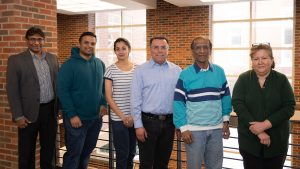
Jan. 29, 2026
Innovation gives scientists remote control of high end instruments
A major push by Mizzou Engineering researchers will make advanced instrumentation as accessible as cloud computing.
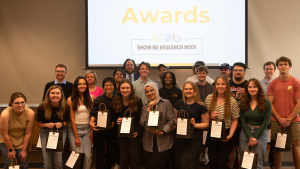
April 22, 2025
Student research shines at Show Me Research Week
The following seven engineering students received awards recognizing work in their respective fields.
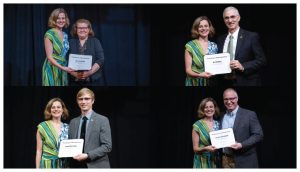
March 17, 2025
Mizzou Engineering honors outstanding faculty, staff, students and alumni
Mizzou Engineering recognized outstanding faculty, staff, students and alumni for their accomplishments and contributions as part of its 2025 awards banquet.
![The multidisciplinary team consists of faculty from Mechanical Engineering (Matt Maschmann), Chemical and Biomedical Engineering (Matthias Young, Sheila Grant and David Grant) and Electrical Engineering and Computer Science (Jianlin Cheng [not pictured], James Keller, Filiz Bunyak and Prasad Calyam).](https://engineering.missouri.edu/wp-content/uploads/2024/11/DSC_4763-300x200.jpg)
Nov. 13, 2024
Accelerating materials discovery
Mizzou Engineers are partnering with Arizona State University, Brewer Science and the U.S. Army Corps of Engineers Engineer Research and Development Center (ERDC), to increase the efficiency of materials development by using artificial intelligence (AI) and machine learning (ML) to model and test new materials. Mizzou's research is supported by a $1.87 million grant, sponsored by Arizona State University.

May 24, 2023
EECS department recognizes outstanding faculty, students
The Department of Electrical Engineering and Computer Science (EECS) recognized outstanding faculty and students at a first-of-its kind awards ceremony earlier this month.
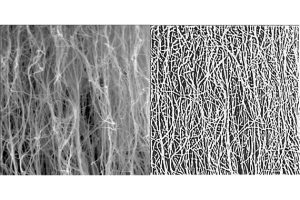
March 15, 2023
Team develops technique to segment carbon nanotube forests in images
Mizzou Engineering researchers are another step closer to controlling the properties of carbon nanotubes growing in mass quantities.
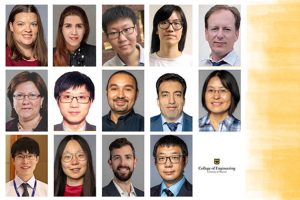
Sep. 11, 2022
Mizzou Engineering welcomes 14 new faculty members
Mizzou Engineering welcomed 14 new faculty members, including 11 tenure-track faculty who bring expertise in areas such as pollution remediation, manufacturing and computational material science. “We’re excited to bring in this group of educators and researchers who will make tremendous contributions to the College,” Dean Noah Manring said. “Students will, no doubt, benefit greatly from their teaching and research expertise.” Joining Mizzou Engineering are: Melissa Collins will serve as First Year Engineering coordinator and an assistant teaching professor in biomedical, biological and chemical engineering. Collins has a PhD from Texas A&M University and a bachelor’s from the University…
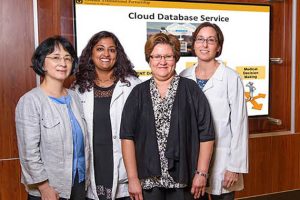
July 13, 2022
Team receives patent for software to monitor speech, swallowing issues
Researchers at Mizzou have devised a set of software that clinicians can use to more precisely measure the level of speech dysfunction.

May 10, 2022
Engineering faculty recognized for patents that take research to market
When Mizzou Engineering’s top faculty aren’t teaching the next generation of engineers, they’re busy collaborating with medical, plant science and other researchers across campus to make life better for the rest of us.
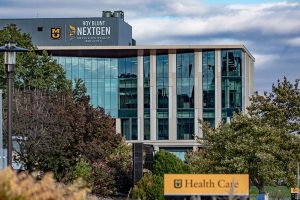
Jan. 3, 2022
Mizzou Engineers to help NextGen Precision Health professionals process, analyze, protect big data
Mizzou Engineers will help NextGen Precision Health professionals analyze the large volumes of information coming from sophisticated MRI and other imaging equipment, as well as determining how best to store that information securely.